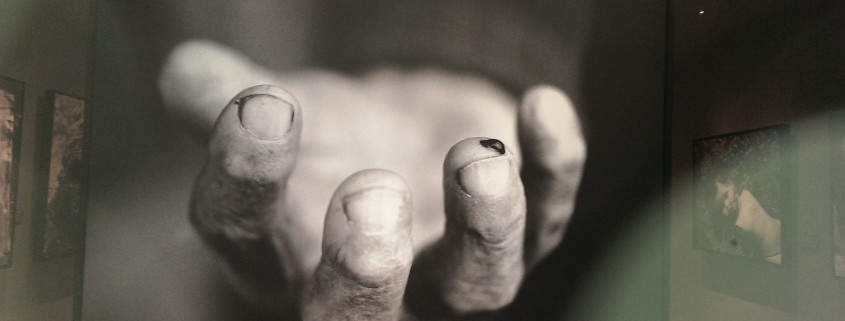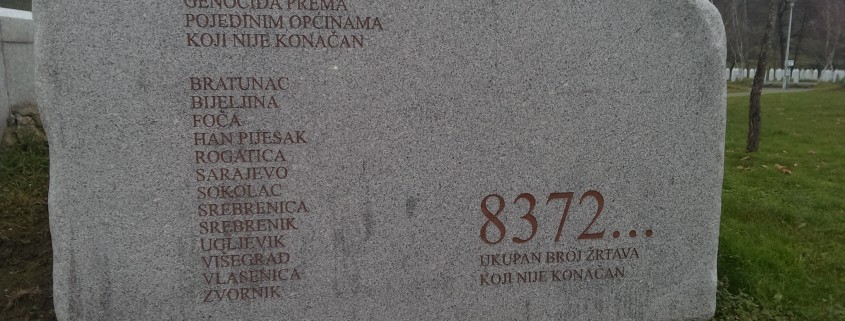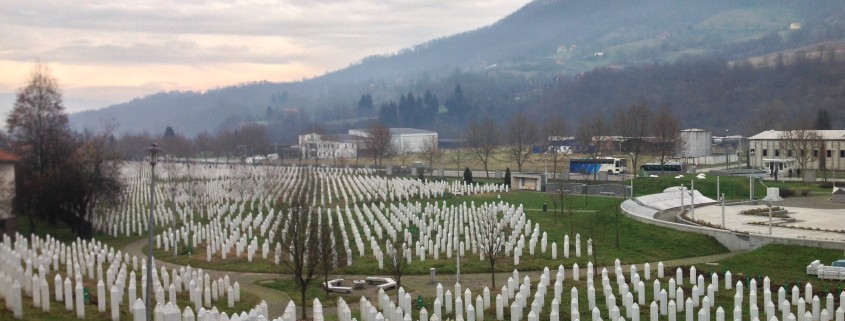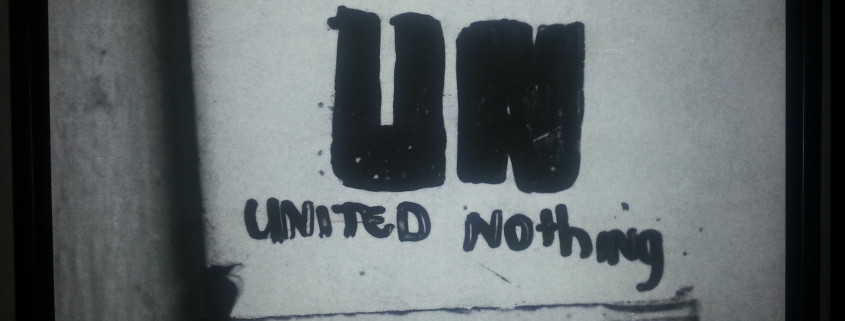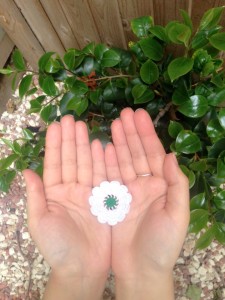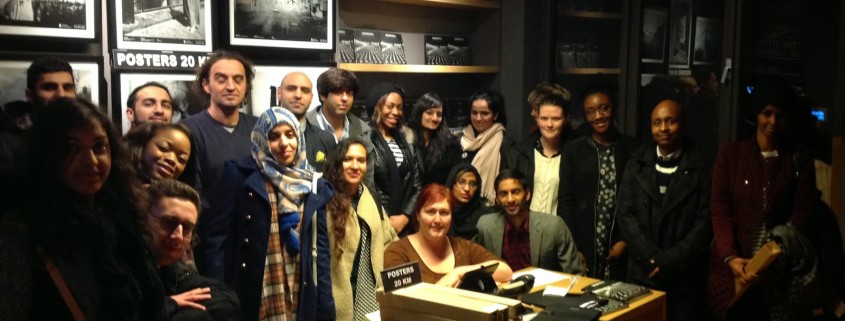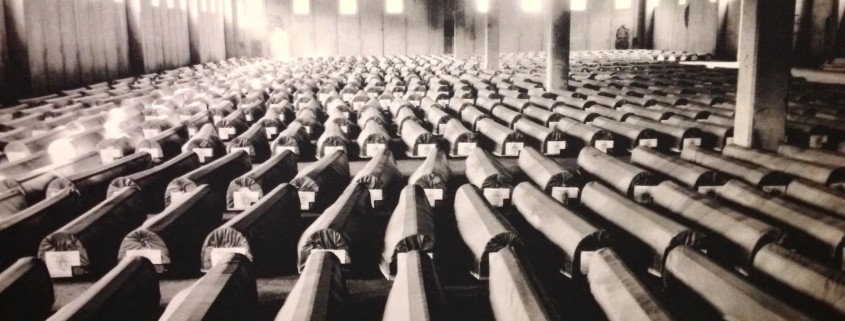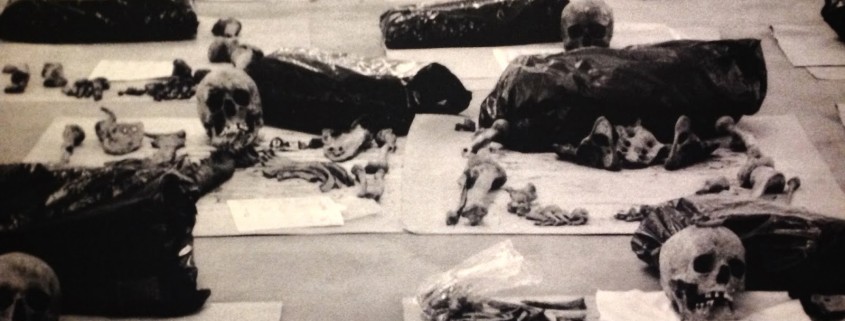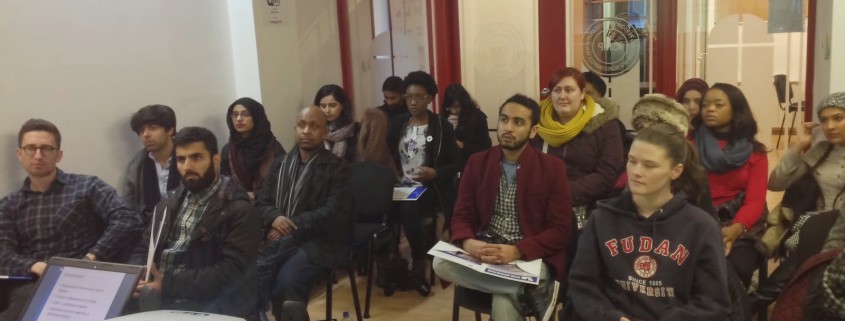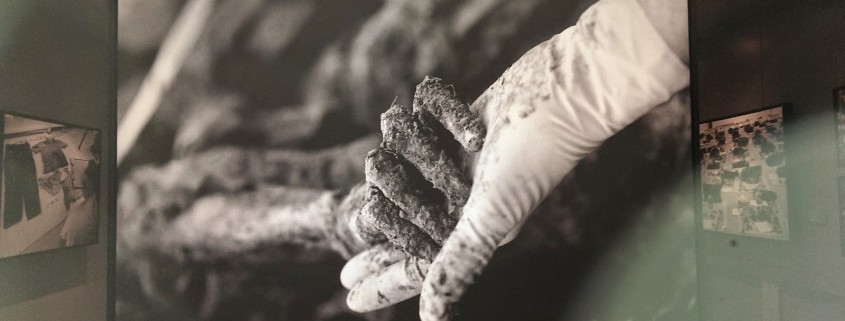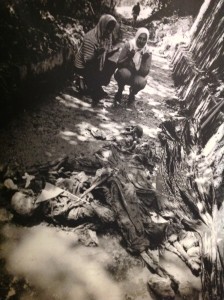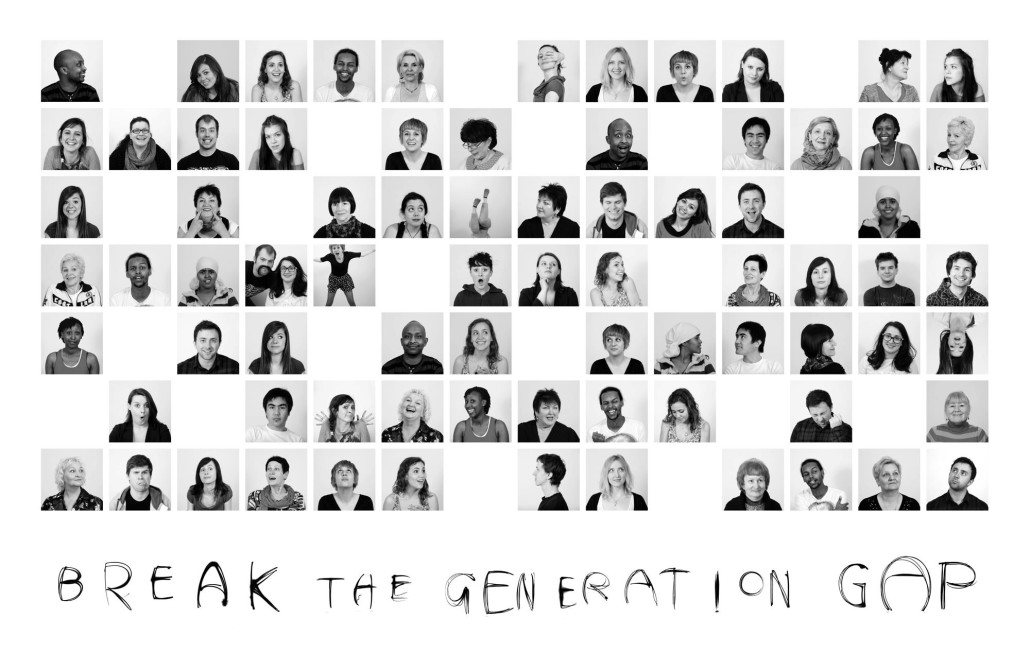Remembering Srebrenica
Edmund Burke once said that “all that is necessary for the triumph of evil is for good men to do nothing”. With this powerful quote in my mind, I didn’t know what to expect from the journey that I was about to make to Bosnia, for an educational trip in December 2014, through the Remembering Srebrenica charity initiative, but I did know it will be one that will teach me the importance of fighting for social justice throughout my life and to continue to do so even when the smoke has cleared.
Although, the Genocide in Srebrenica happened in 1995, it is a genocide that we should never forget because of the tremendous pain it caused and the damage it did to the people of Bosnia. The educational trip taught us how the passive behaviour of the United Nations led thousands of unarmed civilians to their deaths only because they followed a different religion and because, as it seemed, more importance was placed on securing land for Greater Serbia over humanity.
The survivors of Srebrenica till this day are hurting and trying to come to terms with what happened to them and their loved ones in 1995. What keeps the survivors going is the hope of prevalence of justice through the courts. Hope because what else do you have when everything else is taken away from you? Many survivors hope till this day that their loved ones are still alive because their bodies were never found. Hope is one of the greatest weapons for survival. It empowers people to raise their voices against injustice.
As a matter of fact, Bosnia is still trying to build itself back up again from the ashes it was reduced to. Distrust, pain, broken lives and a broken community from once what it was. This is visible in the landscape in Bosnia. You can see the scars and you can certainly feel that there is still a lot of work to be done.
How could this have happened in Europe again when the world had pledged never again after World War Two, and on a continent which leads the way in regards to justice and human rights. Why was the International community unresponsive to the provision of help needed?
From 11th to 16th July 1995 the Bosnian Serb forces of Karadzic and Mladic massacred more than 8,372 Bosniaks only because they were Muslims. Many of them were hunted down in the woods and forests near Srebrenica and many of their bodies are yet to be found. These were men who knew the international community was not going to help them in their hour of need and so fifteen thousand Bosniak men begun on a horrific 63 mile journey through mountains and minefields to Tuzla for safety. Many died along the way in the most inhumane way possible. These were unarmed civilians. Some of the victims were as young as 5 years old and some as old as 94 years old. All of them were someone’s brother, husband, son, father, grandfather. Hasan Hasanovic, one of the few survivors said;
The instinct to survive is a powerful one, but nothing spells death like the face of a helpless man, so, we just looked away from each other.
At the same time, 23,000 women and children were forcibly deported. Prior to this they burned down 269 villages in the region. There was a systematic plan in place to drive and kill all those that stood in the way of creating Greater Serbia. Margaret Thatcher described Serbian ethnic cleansing as combining;
The barbarities of Hitler’s and Stalin’s policies toward other nations.
Thatcher also described what was happening in Bosnia as a second Holocaust.
Background to the conflict
In 1991 Yugoslavia disintegrated into civil war. Serb Nationalism was rampant in the early 90s. Serb Ultra nationalist led by Slobodan Milosevic had launched a campaign to create greater Serbia. Through an unequal fighting, they drove Croats and Muslims out of parts of Bosnia and Croatia, which they hoped to incorporate into Greater Serbia.
In 1993, the United Nations Security Council declared Srebrenica the worlds first internationally protected safe area. With Bosnian Serb forces positioned to overrun the territory of 60,000 Bosnian Muslims, the UN astonishingly demilitarised the town. Bosniak soldiers were forced to hand over their weapons. UN arranged for peacekeepers to protect the city’s inhabitants. UN secretary general at that time, Boutros Boutros-Ghali, asked UN member states to contribute 37,000 peacekeepers to defend Srebrenica. However this request was criticised and was scaled back to 7,600 peacekeepers. More than any other act this decision was the beginning of the end for the civilians of Srebrenica. By July 1995, only 400, not very well armed Dutch peacekeepers remained in the town. When Serb forces launched a major offensive on 6th July 1995, Dutch forces requested NATO air strikes twice to stop the Serb forces advancing. UN commanders repeatedly rejected requests. On July 11th 1995 the request for bombing was finally approved but it was too late. The enclave fell to Serb forces on the 11th of July in 1995.
The Aftermath
In December 1995 American and NATO soldiers arrived in Bosnia to implement the Dayton peace accords. The Dayton Accords has played a big part in allowing Bosnia Serb nationalists to veto any efforts by Bosnian Muslims and Bosnia Croats to create a strong central government.
Ethnic tensions are still present in Bosnia. It is unfortunate to discover that the population of Srebrenica was majority Muslim before the war and now they are in the minority, so far only 2000 people have returned to the region.
It is estimated that 20,000 Bosnian soldiers committed war crimes and only 500 have been convicted. In addition, 20,000 rapes have been reported, when it is estimated that 50,000 women were raped during the war in Bosnia; shockingly only 7 soldiers have faced trial over rape charges.
Hope for justice through the courts is proving slow and painful for many survivors, who have to live with the ordeal again and with the fear that those who are guilty walk away free.
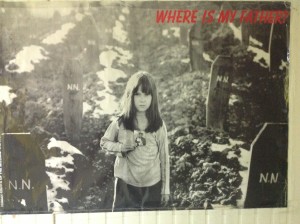 The International Commission of missing Persons is responsible for the heavy task said that they uncovered the remains of one man in four different gravesites, 50 kilometres apart. We had to carry out 13 separate DNA tests to identify him. To help many survivors get closure over what happened to their loved ones, on 11th July every year, the victims and survivors of the genocide are honoured, on Srebrenica Memorial day. Nigel Casey, British Ambassador in Bosnia and Herzegovina explains that;
The International Commission of missing Persons is responsible for the heavy task said that they uncovered the remains of one man in four different gravesites, 50 kilometres apart. We had to carry out 13 separate DNA tests to identify him. To help many survivors get closure over what happened to their loved ones, on 11th July every year, the victims and survivors of the genocide are honoured, on Srebrenica Memorial day. Nigel Casey, British Ambassador in Bosnia and Herzegovina explains that;
It is a moving and emotional occasion for all those present. For the families of those being buried, it is the first chance to say goodbye properly to their loved ones.
There are on-going discussions about reconciliation between Bosnian Muslims and Bosnian Serbs; however this is not going to be an easy task without justice being served first. The international community can also help play a part in healing pain of the survivors by simply acknowledging that Genocide did happen, by showing solidarity with the survivors, and by pushing for justice to be given domestically. An EU resolution was introduced on 15th January 2009 by The European Parliament to call on the council and the commission to commemorate appropriately the anniversary of the Srebrenica Potocari act of genocide by supporting Parliaments recognition of 11 July as the day of commemoration of the Srebrenica genocide all over the EU, and to call on all the countries of the western Balkans to do the same.
The importance of Activism
Reading about what happened in Bosnia in 1995 cannot be compared to actually meeting the survivors, hearing first-hand accounts of what happened, and being at the centre of where those horrific acts happened. It is a profound experience, one that stays with you. The visit also helps to put things in perspective, especially how any effort to challenge injustice and discrimination is better than no effort. It is important for all to take steps in creating a safer society, one that respects differences and celebrates diversity.
The Holocaust Memorial Day Trust reminds us that:
Genocide does not just take place on its own, its a steady process which can begin if discrimination, racism and hatred are not checked and prevented.
Waqar Azmi, the chairman of Remembering Srebrenica said:
There is no doubt in Britain we have come a long way on race relations and achieved a lot. However, we must also recognise that there is still a lot to do. Racism, discrimination and the promotion of hatred, continues to persist. We must recognise the dangers of these and understand the failure to play our part can result in something gruesome.
In addition, Professor Timothy Winters of the University of Cambridge highlights that:
As xenophobic and anti-muslim parties gain in popularity in our troubled Europe, the memory of Srebrenica reminds us of the fearful end point of ethnic hatred. The victims of July 11th live in our memories, urging us never to forget the duty to respect and protect those whose religion and culture is different from our own.
The importance of promoting peace, respect and co-operation within our communities is vital.
Unfortunately, in recent times we have witnessed history repeating itself on different continents of the world. Injustice is still taking place, to name a few in Burma, Palestine and Central African Republic.
Genocide is crime that needs to be prevented at early stages. History does not need to repeat itself. Chief Rabbi The right Hon Lord Sacks said History is not a film endlessly repeating itself. The ending has not been written History is made by our choices. And nothing that has happened in the past forces us to let it happen again.
Written by Sophia Begum


